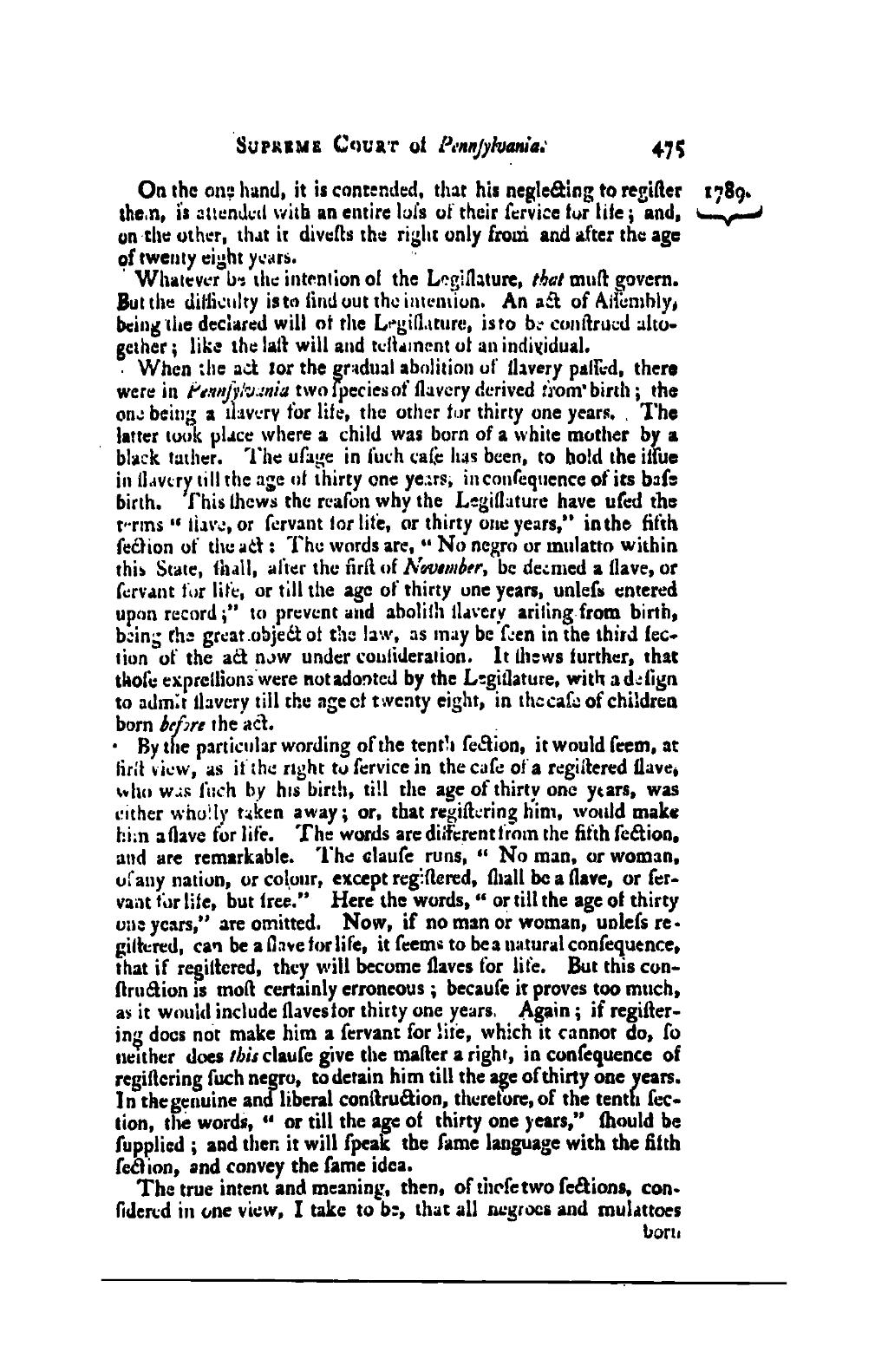1789.![]()
On the one hand, it is contended, that his neglecting to regifter them, is attended with an entire lofs of their fervicefor life ; and, on the other, that it divefts the right only from and after the age of twenty eight years.
Whatever be the intention of the Legiflature, that muft govern. But the difficulty is to find out the intention. An act of Affembly, being the declared will of the Legiflature, is to be conftrued altogether ; like the laft will and teftament of an individual.
When the act for the gradual abolition of flavery paffed, there were in Pennʃylvania two fpecies of flavery derived from birth ; the one being a flavery for life, the other for thirty one years. The latter took place where a child was born of a white mother by a black father. The ufage in fuch cafe has been, to hold the iffue in flavery till the age of thirty one years, inconfequence of its bafe birth. This fhews the reafon why the Legiflaure have ufed the terms “ flave, or fervant for life, or thirty one years,” in the fifth fection of the act : The words are,“ No negro or mulatto within this State, fhall, after the firft of November, be deemed a flave, or fervant for life, or till the age of thirty one years, unlefs entered upon record,” to prevent and abolifh flavery arifing from birth, being the great object of the law, as may be feen in the third fection of the act now under confideration. It fhews further, that thofe expreffions were not adopted by the Legiflature, with a defign to admit flavery till the age of twenty eight, in the cafe of children born beƒore the act.
By the particular wording of the tenth fection, it would feem, at firft view, as if the right to fervice in the cafe of a regiftered flave, who was fuch by his birth, till the age of thirty one years, was either wholly taken away; or, that regiftering him, would make him a flave for life. The words are different form the fifth fection, and are remarkable. The claufe runs, “ No man, or woman, of any nation, or colour, except regiftered, fhall be a flave, or fervant for life, but free.” Here the words, “ or till the agre of thirty one years,” are omitted. Now, if no man or woman, unlefs regiftered, can be a flave for life, it feems to be a natural confequence, that if regiftered, they will become flaves for life. But this conftruction is moft certainly erroneous ; becaufe it proves too much, as it would include flaves for thirty one years. Again ; if regiftering doc not make him a fervant for life, which it cannot do, fo neither does this claufe give the mafter a right, in confequence of regiftering fuch negro, to detain him till the age of thirty one years. In the genuine and liberal conftruction, therefore, of the tenth fection, the words, “ or till the age of thirty one years,” fhould be fupplied; and then it will fpeak the fame language with the fifth fection, and convey the fame idea.
The true intent and meaning, then, of thefe two fections, confidered in one view, I take to be, that all negroes and mulattoes
born

